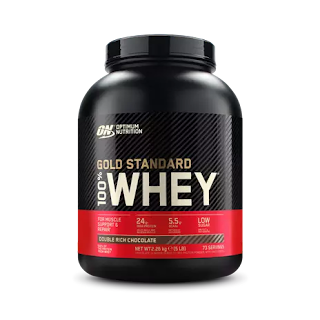Whey protein powders are a popular nutritional supplement
that many athletes and fitness enthusiasts use to support their workout goals.
Whey protein is a complete protein that contains all the essential amino acids
required for building and repairing muscles. It is extracted from milk and is a
byproduct of the cheese-making process. Whey protein supplements are popular
among athletes and gym-goers as they are easily digested, absorbed, and
utilized by the body. Halal whey protein powders are gaining popularity in the
USA due to the growing demand for halal-certified products among the Muslim
population.
Benefits of Whey Protein Powders
Whey protein powders have numerous benefits for athletes,
gym-goers, and individuals looking to increase their protein intake. Here are
some of the key benefits of whey protein powders:
- Muscle
Building and Repair: Whey protein is an excellent source of protein for
building and repairing muscles. It contains all the essential amino acids
that are required for muscle growth and repair. - Weight
Loss: Whey protein is known to help with weight loss due to its high
protein content, which helps to keep you full for longer periods, reducing
your overall food intake. - Improved
Immune System: Whey protein contains immunoglobulins, which are known to
improve the immune system. - Reduced
Inflammation: Whey protein is known to reduce inflammation in the body,
which can help with recovery after a workout. - Improved
Heart Health: Whey protein is known to help with reducing blood pressure
and cholesterol levels, which can improve heart health.
Constituents of Whey Protein Powder
Whey protein powder is a concentrated source of protein that
is derived from milk. The two main types of whey protein are whey protein
isolate and whey protein concentrate. Whey protein isolate contains a higher
percentage of protein and is lower in fat and lactose than whey protein
concentrate. The constituents of whey protein powder include:
- Protein:
Whey protein powder is primarily made up of protein, with whey protein
isolate containing around 90% protein, while whey protein concentrate
contains around 70-80% protein. - Carbohydrates:
Whey protein powder typically contains a small amount of carbohydrates,
with whey protein isolate containing less than 1 gram of carbohydrates per
serving. - Fats:
Whey protein powder contains a small amount of fat, with whey protein
isolate being virtually fat-free. - Lactose:
Whey protein concentrate contains a small amount of lactose, while whey
protein isolate is virtually lactose-free.
Best 5 Halal Certified Whey Protein Powders
Here are the top 5 halal-certified whey protein powders
available in the USA:
- Optimum
Nutrition Gold Standard 100% Whey Protein: This is one of the most popular
whey protein powders in the world and is halal-certified. It contains high-quality
whey protein isolate and concentrate, and each serving provides 24 grams
of protein. - Ryse Protein: This is a high quality whey protein powder that
contains a blend of whey protein isolate and concentrate, along with other
ingredients. Another plus is the companies openness regarding ingredients. - Dymatize
ISO 100: This is a halal-certified whey protein isolate powder that is
known for its high protein content and fast absorption. It is also
gluten-free and lactose-free. - Muscletech
Nitro-Tech: This is a halal-certified whey protein powder that contains a
blend of whey protein isolate and concentrate, along with other
ingredients like creatine and BCAAs. - MusclePharm
Combat Protein Powder: This is a halal-certified whey protein powder that contains a blend of whey protein
isolate, concentrate, and hydrolysate, along with other ingredients like BCAAs
and glutamine. It is also gluten-free and low in sugar.
Ingredients to Look for Which are Not Halal
When looking for halal whey protein powders, it’s important
to be aware of ingredients that may not be halal. Some of the ingredients to
look out for include:
- Gelatin:
Gelatin is often used as a thickener in protein powders and is usually
derived from non-halal sources. - L-cysteine:
L-cysteine is an amino acid that is used as a dough conditioner in some
protein powders. It can derived from non-halal sources. Check label to
confirm - Carmine:
Carmine is a red food colorant that is often used in protein powders. It
is derived from crushed insects and is not considered halal. - Glycerin:
Glycerin is a common ingredient in protein powders, but it can be derived
from animal fat or vegetable oil. It’s important to check the source of
the glycerin to ensure it’s halal. - Stearic
acid: Stearic acid is a fatty acid that is used as a binding agent in some
protein powders. It can be derived from non-halal sources.
Common Q&A
- Is
Optimum Nutrition Gold Standard Whey Protein Halal?
Yes, Optimum Nutrition Gold Standard 100% Whey Protein is
halal-certified.
- Is
Ryse Protein Halal?
Yes, Ryse Protein is halal-certified.
- Is ON
Whey Protein Halal?
Yes, ON Whey Protein (Optimum Nutrition) is halal-certified.
- Is
Ultimate Nutrition Prostar Halal Whey Protein Pure Natural Flavor Halal?
Yes, Ultimate Nutrition Prostar is halal-certified.
- Is GNC
Whey Protein Halal?
Not all GNC whey protein products are halal. It’s important
to check the label or contact the manufacturer to ensure that the product is
halal-certified.
- Is
Carnivor Whey Protein Halal?
No, Carnivor Whey Protein is not halal-certified as it
contains beef protein.
- Is
BPI Whey Protein Halal?
Not all BPI whey protein products are halal. It’s important
to check the label or contact the manufacturer to ensure that the product is
halal-certified.


scitron protein and zma+ is halal or haram?